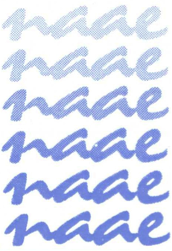NAAE raises questions about changes to ARC research directions.
The Hon. Stuart Robert MP
Minister for Employment, Workforce Skills, Small and Family Business
Acting Minister for Education and Youth
Parliament House, Canberra, ACT 2600
Dear Minister Robert,
The National Advocates for Arts Education (NAAE) write to raise serious questions about the recent announcement you made as Acting Minister for Education and Youth regarding changes to the Australian Research Council (ARC) and directions for Australian research. The NAAE has grave concerns about the proposed changes, and believes they will not realise the government’s stated intention of ‘realising Australia’s economic recovery from the pandemic’ and ‘to better leverage Australia’s world-class university research sector to support Australia’s economy and society’.
In your letter to the Australian Research Council, there are a number of significant changes proposed regarding national priorities, industry involvement, focus on commercialisation metrics, and a new committee to advise the CEO. While initially some of these proposals may appear reasonable to those outside of university and research fields, they flag an increased level of government interference into independent peer-review processes, and major implications for the type of research that will occur in years to come.
One significant request is that 70% of all industry focused linkage grants should target the area of manufacturing, not the broad range of industry sectors which contribute to the Australian economy and society. A national research focus on manufacturing (not even industry more broadly) further sounds a death knell for much of the research that has been occurring in arts, humanities and social sciences. Education, the arts and humanities have never fared all that well with ARC funding, given the current national Science and Research Priorities which have none that focus on these areas.
However, over the past decade there have been a number of significant arts and education projects that have been funded and supported by industry under the ARC Linkage programs, including some of the following in 2020:
Ambitious and Fair: Strategies for a sustainable visual arts sector. This project aims to strengthen the visual art industry’s economic ecosystem (Royal Melbourne Institute of Technology (RMIT), National Association for the Visual Arts (NAVA), Australian Museums and Galleries Association (AMaGA))
Precarious Movements: Choreography and the Museum (University of New South Wales (UNSW), Art Gallery of New South Wales (AGNSW), TATE UK, National Gallery of Victoria (NGV), and Monash University Museum of Art (MUMA))
Sparking Imagination Education: Transforming inequality in schools. This project will produce an Imagination Education Pedagogical Framework for use by teachers in schools. (University of Sydney, AIME mentoring, Social Ventures Australia)
Visualising Humanitarian Crises: Transforming Images and Aid Policy (University of Queensland (UQ), World Press Photo Foundation, Red Cross, Médecins Sans Frontières)
To map and enhance Australian musical improvisation as a creative industry. (Western Sydney University, Australian Music Centre, Earshift Music)
Creative industries pathways to youth employment in the COVID-19 recession. (Royal Melbourne Institute of Technology (RMIT), Australia Council for the Arts, Australian Theatre for Young People (ATYP), The Push, Future Foundations, Centre for Multicultural Youth)
Rebooting the Muse: Post-COVID-19 sustainability in the performing arts. Rebooting the Muse advocates new ways of tackling the urgent challenges facing the Australian performing arts in the wake of the COVID-19 pandemic and climate change emergency. (University of Adelaide, (Adelaide Symphony Orchestra; State Theatre Company of South Australia; Patch Theatre, Light Cultural Foundation, Illuminate Adelaide).
According to your letter, the total pool for linkage funding beyond manufacturing will be severely restricted, so this will make it extremely difficult for new arts and education research to be funded.
This new direction pays little heed to how Australia’s world-class university research sector might support Australia’s ‘society’ given the impact of COVID 19. The past two years have demonstrated that such a crisis has an impact far beyond the science and manufacturing areas, and research needs to be conducted across the range of different disciplines and domains to examine the effects and possibilities for humans, cultures and communities.
Your letter also outlines proposed changes which include industry, business and end users to be on assessment panels, undermining the independence and credibility of the ARC and its College of Experts. It also assumes that industry knows how to prioritise research, the implication being research takes a direct trajectory from question to industrial impact. It's well established that the biggest gains and impacts of research are often happenstance and identified retrospectively from fundamental research. So-called end-users actually need academic research to be conducted independently as well as in partnership.
The NAAE believes research funding to fuel COVID recovery needs to value the educational, social and cultural dimensions of response and recovery, and that the current government directives that narrow the focus for funded research should be abandoned. It is crucial that quality research across disciplinary realms is supported to help create visions and possibilities, to help promote social inclusion and cohesion, foster critical thinking, imagination and innovation – all aspects that are essential to Australia’s future.
We respectfully request that you reconsider your direction to the ARC in light of the considerations we have raised.
Yours sincerely,
Dr John Nicholas Saunders, NAAE Chair
On behalf of the National Advocates for Arts Education
22 December 2021
